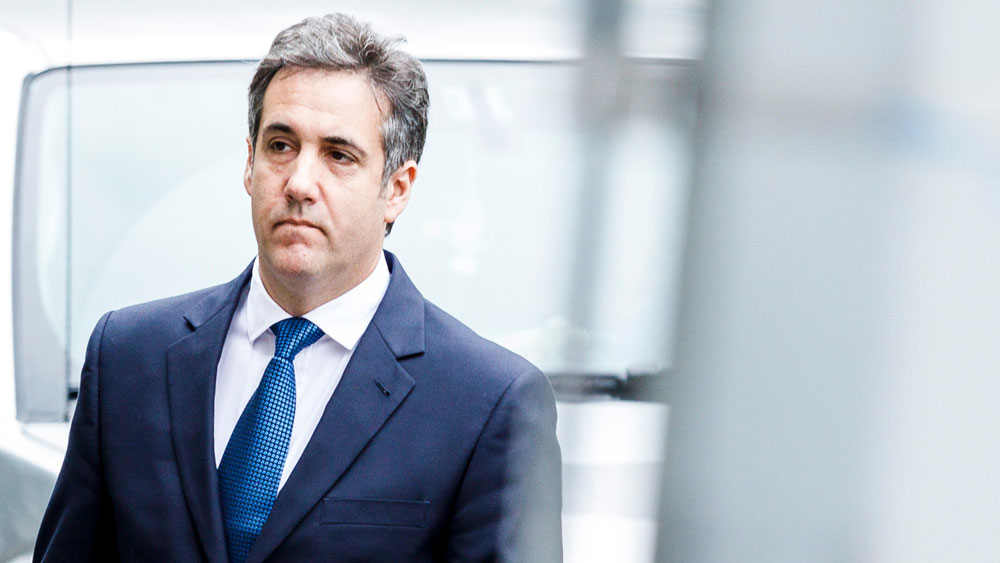Prosecutors Outline How National Enquirer Assisted Michael Cohen, Trump Campaign in Stifling Negative Stories
By Ted Johnson
LOS ANGELES (Variety.com) – WASHINGTON — Michael Cohen’s guilty plea on Tuesday also pointed to something that was a factor in coverage of Donald Trump’s 2016 presidential campaign — namely the laudatory publicity he got from the National Enquirer.
In indictment documents unsealed shortly after Cohen appeared at a New York federal court, prosecutors allege that the Enquirer and its parent company, American Media Inc., advised and assisted the Trump campaign in identifying potentially negative stories about the candidate.
The indictment does not name AMI or the Enquirer, but identify them as “corporation 1” and “magazine 1.” The publisher and the Enquirer have previously been identified in press accounts and court records related to payments to Stormy Daniels and Karen McDougal, who claim to have had affairs with Trump. Those payments are the heart of the government’s claims that Cohen violated campaign finance laws. Cohen said in court that he was “directed” by Trump to do so.
According to prosecutors, the chairman and CEO of the “media company” — who is David Pecker, Trump’s friend — in August 2015 coordinated with Cohen and members of the campaign to “help deal with negative stories about [Trump’s] relationships with women by, among other things, assisting the campaign in identifying such stories so they could be purchased and their publication avoided.” Pecker “agreed to keep Cohen apprised of any such negative stories.”
AMI advised Cohen throughout the course of the campaign, leading to the purchase of the Daniels and McDougal stories “so as to suppress them and prevent them from influencing the election.”
A spokesman for AMI did not return a request for comment.
Trevor Potter, the founder and president of the Campaign Legal Center and former chairman of the Federal Election Commission, said that the indictment poses legal issues for AMI.
“Generally, the corporate parent of a news organization is not protected by the ‘press exemption,’ especially when acting outside their ‘press function,’” he said via email.
“Here, Cohen says they entered into an agreement with Trump and his campaign to use corporate money to squelch information detrimental to Trump’s election. That presents a serious legal problem for AMI.”
Daniels, according to prosecutors, began attempting to sell her story in June 2016, and her attorney contacted the editor of the tabloid. The editor and Pecker then contacted Cohen, who urged them to negotiate to buy Mcdougal’s story with the promise that AMI would be reimbursed. The agreement was to acquire her “limited life rights” for $150,000, along with a commitment to feature her on two magazine covers and to publish 100 of her magazine articles.
“Despite the cover and article features to the agreement, its principal purpose, as understood by those involved, including Cohen, was to suppress [McDougal’s] story so as to prevent it from influencing the election,” prosecutors said.
In late August and September of 2016, Cohen reached an agreement to assign the non-disclosure portion of McDougal’s agreement with AMI to a shell company that Cohen set up, Resolution Consultants LLC. The agreement was signed, and a consultant for AMI, using his own shell entity, sent an invoice for $125,000, according to prosecutors. Before Cohen paid the sum, however, Pecker contacted Cohen and told him the deal was off.
The Enquirer editor was contacted by an agent for Daniels on Oct. 8. AMI then reached out to Cohen and put him in touch with Daniels’ attorney. The result: a $130,000 agreement “to himself purchase [Daniels’] silence,” according to prosecutors.
But the deal was not finalized. Daniels’ attorney told the Enquirer editor that she was about to make a deal with another outlet. Her attorney at the time was Keith Davidson.
The editor then texted Cohen that “[w]e have to coordinate something on the matter [Daniels’ attorney is] calling you about or it could look awfully bad for everyone.” Cohen agreed to make the payment, and then called Daniels’ attorney to finalize the deal, according to prosecutors. The money from Cohen was wired on Oct. 27, 2016, using the name Essential Consultants.
“Cohen caused and made the payments described herein in order to influence the 2016 presidential election,” federal prosecutors said. “In so doing, he coordinated with one or more members of the campaign, including through meetings and phone calls, about the fact, nature, and timing of the payments.”
Cohen then sought reimbursement for the payments from the Trump Organization, for an amount that totaled $420,000. Prosecutors say Cohen presented the company with a copy of a bank statement from the Essential Consultants account, which include the $130,000 payment to Daniels, and an additional $50,000 for “tech services” related to the campaign.
“After receiving this document, executives of the Company ‘grossed up’ for tax purposes Cohen’s requested reimbursement of $180,000 to $360,000, and then added a bonus of $60,000 so that Cohen would be paid $420,000 in total,” prosecutors said.
The agreement was for Cohen to be paid $35,000 over the course of 12 months, and that Cohen would send invoices for the payments, but he listed them as a retainer for services for 2017.
“The Company accounted for these payments as legal expenses,” prosecutors said. “In truth and in fact, there was no such retainer agreement, and the monthly invoices Cohen submitted were not in connection with any legal services he had provided in 2017.”
RELATED VIDEO:

